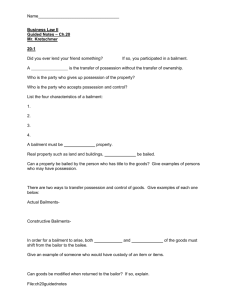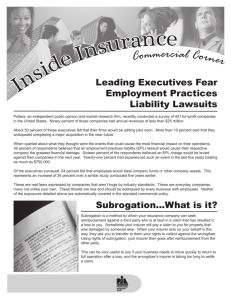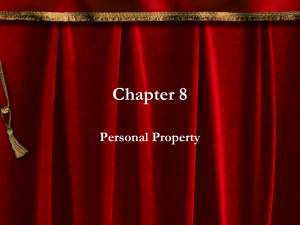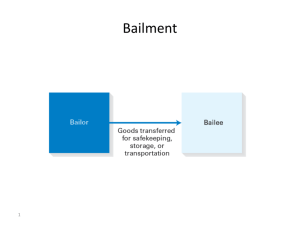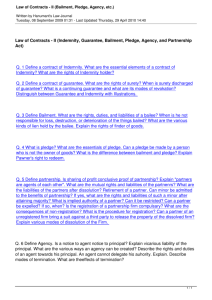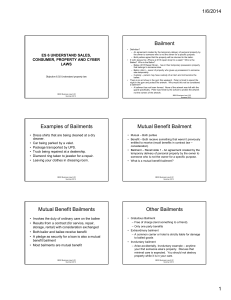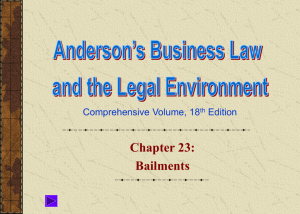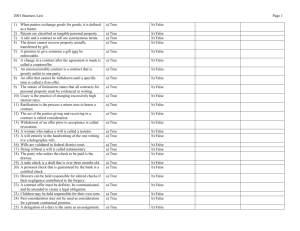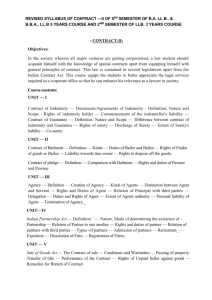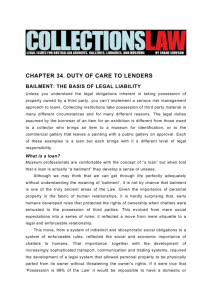THE BALEFUL BAILMENT
advertisement
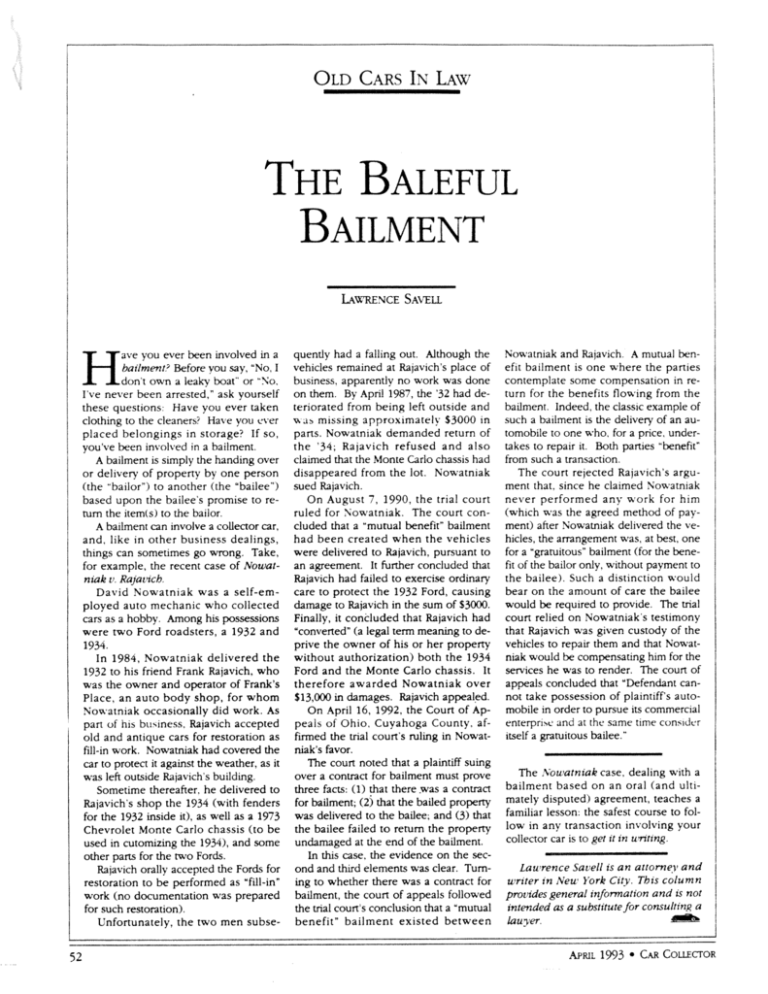
OLD CARS THE BALEFUL BAILMENT LAWRENCE SAVELL Have you ever been involved in a bailment? Before you say, "No. I don't own a leaky boat" or "No, I've never been arrested," ask yourself these questions: Have you ever taken clothing to the cleaners? Have you ever placed belongings in storage? If so, you've been involved in a bailment. A bailment is simply the handing over or delivery of property by one person (the "bailor") to another (the "bailee") based upon the bailee's promise to rerum the item(s) to the bailor. A bailment can involve a collector car, and, like in other business dealings, things can sometimes go wrong. Take, for example, the recent case of Nowatniak a. Rajatgch. David Nowatniak was a self-employed auto mechanic who collected cars as a hobby. Among his possessions were two Ford roadsters, a 1932 and 1934. In 1984, Nowatniak delivered the 1932 to his friend Frank Rajavich, who was the owner and operator of Frank's Place, an auto body shop, for whom Nowatniak occasionally did work. As part of his business, Rajavich accepted old and antique cars for restoration as fill-in work. Nowatniak had covered the car to protect it against the weather, as it was left outside Rajavich's building. Sometime thereafter, he delivered to Rajavich's shop the 1934 (with fenders for the 1932 inside it), as well as a 1973 Chevrolet Monte Carlo chassis (to be used in cutomizing the 1934), and some other parts for the two Fords. Rajavich orally accepted the Fords for restoration to be performed as "fill-in" work (no documentation was prepared for such restoration). Unfortunately, the two men subse52 quently had a falling out. Although the vehicles remained at Rajavich's place of business, apparently no work was done on them. By April 1987, the '32 had deteriorated from being left outside and vas missing approximately $3000 in parts. Nowatniak demanded return of the '34; Rajavich refused and also claimed that the Monte Carlo chassis had disappeared from the lot. Nowatniak sued Rajavich. On August 7, 1990, the trial court ruled for Nowatniak. The court concluded that a "mutual benefit" bailment had been created when the vehicles were delivered to Rajavich, pursuant to an agreement. It further concluded that Rajavich had failed to exercise ordinary care to protect the 1932 Ford, causing damage to Rajavich in the sum of $3000. Finally, it concluded that Rajavich had "converted" (a legal term meaning to deprive the owner of his or her property without authorization) both the 1934 Ford and the Monte Carlo chassis. It therefore awarded Nowatniak over $13,000 in damages. Rajavich appealed. On April 16, 1992, the Court of Appeals of Ohio, Cuyahoga County, affirmed the trial court's ruling in Nowatniak's favor. The court noted that a plaintiff suing over a contract for bailment must prove three facts: (1) that there was a contract for bailment; (2) that the bailed property was delivered to the bailee; and (3) that the bailee failed to return the property undamaged at the end of the bailment. In this case, the evidence on the second and third elements was clear. Turning to whether there was a contract for bailment, the court of appeals followed the trial court's conclusion that a "mutual benefit" bailment existed between Nowatniak and Rajavich. A mutual benefit bailment is one where the parties contemplate some compensation in return for the benefits flowing from the bailment. Indeed, the classic example of such a bailment is the delivery of an automobile to one who, for a price, undertakes to repair it. Both parties "benefit" from such a transaction. The court rejected Rajavich's argument that, since he claimed Nowatniak never performed any work for him (which was the agreed method of payment) after Nowatniak delivered the vehicles, the arrangement was, at best, one for a "gratuitous" bailment (for the benefit of the bailor only, without payment to the bailee). Such a distinction would bear on the amount of care the bailee would be required to provide. The trial court relied on Nowatniak's testimony that Rajavich was given custody of the vehicles to repair them and that Nowatniak would be compensating him for the services he was to render. The court of appeals concluded that "Defendant cannot take possession of plaintiff's automobile in order to pursue its commercial enterprise and at the same time consider itself a gratuitous bailee." The Nowatniak case, dealing with a bailment based on an oral (and ultimately disputed) agreement, teaches a familiar lesson: the safest course to follow in any transaction involving your collector car is to get it in writing. Lawrence Savell is an attorney and writer in New York City. This column protndes general information and is not intended as a substitute for consulting a lawyer. APRIL 1993 • CAR COLLECTOR
